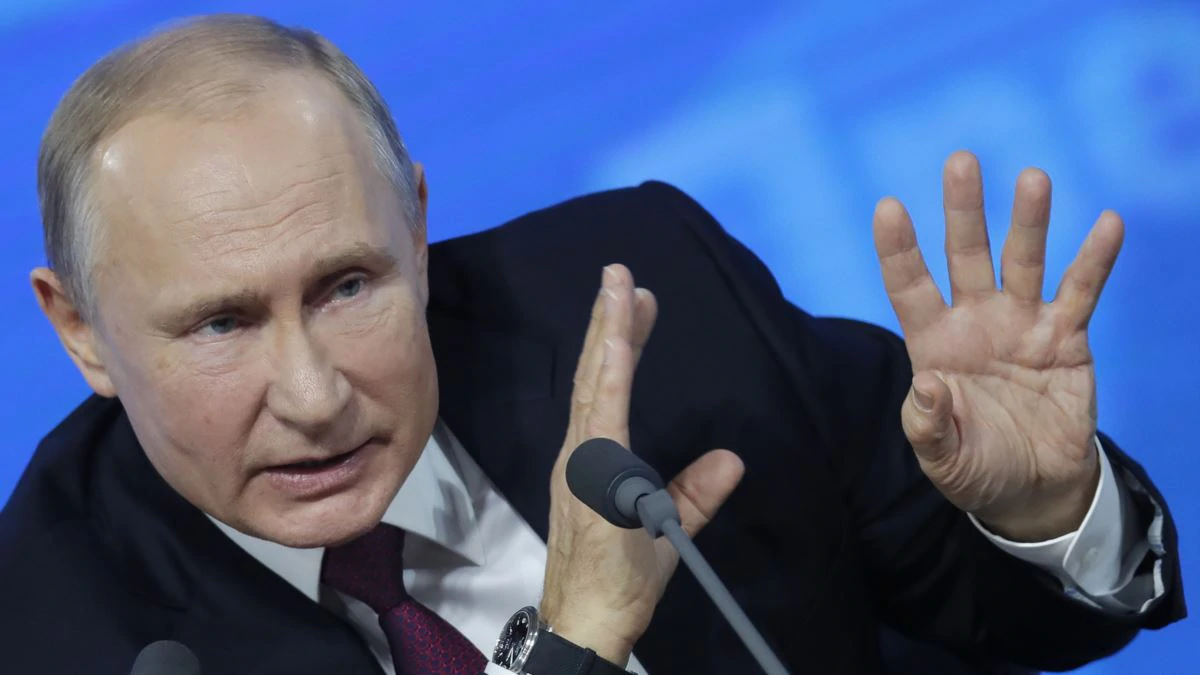
Russian President Vladimir Putin will take questions from reporters on December 17 in his highly choreographed annual end-of-year news conference that comes amid suspicions Russia was behind a massive cyberattack on the United States and a report presenting evidence that Russia’s Federal Security Service (FSB) poisoned Kremlin critic Aleksei Navalny.
The nationally televised news conference is one of a series of high-profile events Putin uses to burnish his image, reassure Russians that they are in good hands, and send signals to the United States and the rest of the world.
Putin, 68, has dominated politics in Russia for two decades, serving as president or prime minister since 1999. Constitutional changes approved earlier this year open a path for the former KGB officer to stay in power until 2036.
Due to the COVID-19 pandemic, Putin will participate remotely from his Novo-Ogaryovo country residence, while members of the national and foreign press will be on hand at Moscow’s World Trade Center. Regional media will join via video link.
The Kremlin said more than 700 journalists from Russia and abroad had been accredited for the marathon event that usually lasts several hours.
It comes as Russia faces suspicions that it was behind a massive cyberattack in the United States that targeted government agencies, including the Department of Homeland Security, which oversees border security and defense against hacking.
The cyberattacks, first reported on December 13, also hit the U.S. departments of Treasury and Commerce. Parts of the Defense Department were breached, The New York Times reported, while The Washington Post said that the State Department and National Institutes of Health were hacked.
Moscow denied the reports which came as Putin congratulated Joe Biden on December 15 on his victory in the U.S presidential election — six weeks after the vote and after the Electoral College officially affirmed the win by Biden, who is expected to take a harder line with the Kremlin than President Donald Trump.
The cyberattack allegations also come amid a new joint investigation led by the British-based open-source research group Bellingcat that Navalny was poisoned by operatives from the FSB, the successor to the KGB, during his trip to the Siberian city of Tomsk in August.
Foreign Minister Sergei Lavrov on December 16 dismissed the report as “funny to read,” without directly denying it, but Putin has not commented on it publicly. His spokesman, Dmitry Peskov, called off daily briefings with journalists on December 15 and 16.
Putin will face the press after a new poll by the Levada Center found support for the president among young Russians had roughly halved in the past year.
Russia’s commodity-dependent economy has been hit this year by a plunge in prices for oil, its main export, and by the impact of the coronavirus, with lockdowns slowing business activity.
Russia, which has the fourth-highest number of recorded infections in the world, boasted being the first nation to approve a COVID-19 vaccine in August after less than two months of human testing.